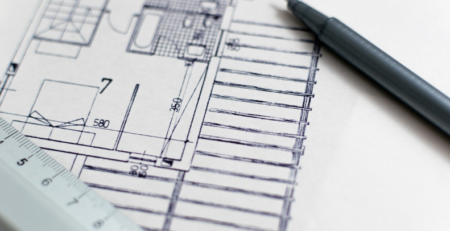What are Money Laundering Checks?
As part of the process of buying your dream home, you will be required to show evidence of your deposit and demonstrate where the money comes from for the purpose of money laundering checks. This will be conducted by your solicitor, who is legally required to carry these checks out.
Furthermore, it will be necessary to demonstrate the “source of funds,” i.e., where these funds came from. The source of funds shows how the money was obtained, whereas the proof of funds shows that you have the funds ready.
It’s not uncommon for these funds to be gifted by a family member, like a parent helping their offspring get onto the property ladder. If that’s the case, the family member will be required to sign a declaration confirming that they are the source of funds and that it was a gift.
According to Jamie Jonson, CEO of FJP Investment, “Money laundering checks are crucial to perform to help combat the proceeds of crime from being used to purchase property in the UK. Unfortunately, the UK property market is often the target for criminals looking to launder their proceeds. The UK property market is enormous and therefore makes it an attractive avenue whereby organised criminals can ‘clean’ their funds quickly since large amounts of money are involved when buying property.”
Documents needed for money laundering checks
Whether buying a property as a home or as a buy-to-let property investment, everyone buying property in the UK is required to comply with the Money Laundering Regulations.
Homebuyers are required to show proof of identity, address, and source of funds. Your estate agent and solicitor must be sure that they are dealing with the person or persons whom they say they are. Remember, these checks are undertaken at the start of the conveyancing process, so make sure that any documentation that is being used as proof is up-to-date.

Any out-of-date documents like passports, etc. will cause delays and may even mean you missing out on the home you’ve got your heart set on.
Various documentation will be needed to prove these, examples of which include:
Proof of Identity
- UK/EU photo driving licence (make sure this is up to date)
- Passport (make sure this is up to date)
- Residence permit
- HMRC (Inland Revenue) tax letter or notification
- Letter of State Pension
- Benefits letter
Proof of address
- Utility bills (gas, phone, electric, rent, water, but NOT mobile phone)
- Recent bank or building society statements
- State pension
- Recent mortgage statements
- Benefits letters (e.g., Universal Credits)
- Council tax bill
- Tenancy agreement
Proof of funds
Your solicitor will want to see proof of funds to make sure that you are able to pay the deposit when needed to buy your home. This applies no matter what method of payment you choose, such as with a mortgage or cash.
Sometimes more unusual circumstances can arise, like if someone won the lottery, for example, and they will be required to show proof of this. The same applies if the money was won in a betting shop or casino. Evidence such as receipts will be required to show how you came by the funds. Particularly if the funds come from a diversity of sources other than wages, make sure to keep hold of all the evidence so it’s ready for when you start the buying process.
Common forms of evidence for proof of funds:
- A mortgage in principle from your lender
- Bank statement showing deposit amount (if buying with a mortgage)
- Banks statement showing full mount (for cash buyers)
- Additional bank statements going back over time. This proves a history of money accumulation.
- Evidence from the sale of property
- Evidence of money coming from either a gift or from being left in a will
- Evidence from shares or other investments
Why is proof of funds necessary?
Before the estate agent proceeds with the purchasing process, they will want to see proof of funds to ensure you can afford to buy the property in question. This will demonstrate you are serious about buying and not wasting time.
Estate agents only get paid when property is sold, so for cash buyers, showing proof of funds at the early stages of the conveyancing will be to your benefit since it clearly demonstrates you have the funds and are ready to move on a quick sale. Proof of sufficient funds also shows your solicitor that you are fully prepared for completion day and paying the requisite taxes and solicitor fees.
Who will need to see proof of funds?
In addition to your solicitor/conveyancer needing to see proof of funds, there are others who may also request proof of funds for the sale of property to proceed. Don’t be offended when asked by these various parties involved, it is routine and an essential part of the whole process of buying a home.
- Mortgage lender. Your mortgage lender will typically ask to see proof of deposit funds early on as evidence of being able to afford the property.
- Estate agent. Asking to see the mortgage in principle is common when viewing properties. Although you are not required to show proof of funds until the offer has been accepted, many estate agents would prefer to see it prefer this stage to shoe that you have the funds, and you are serious about buying.
ARE YOU READY TO START INVESTING?
Subscribe to our mailing list now for exclusive deals, investment guides and the latest information from the property market.







